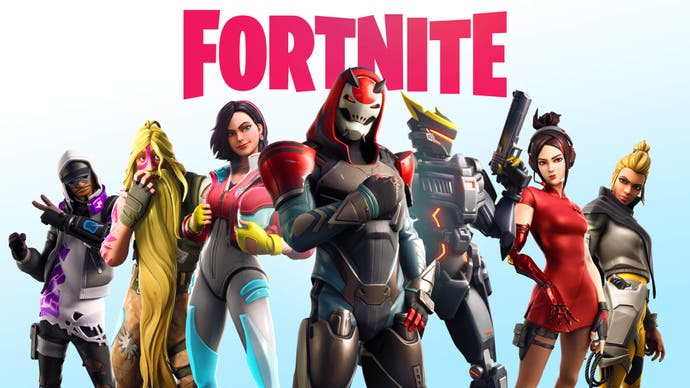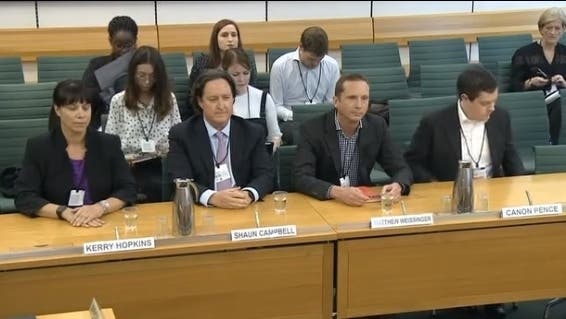This week, Parliament gave a squirming EA and Epic a kicking
And now the noose is tightening around loot boxes, aka "surprise mechanics".
It was not a good show from the representatives from EA and Epic sent to answer questions from Parliament this week on the difficult issues with video games.
Shaun Campbell, UK country manager, and Kerry Hopkins, vice president, legal and government affairs were sent to rep Electronic Arts, while Matthew Weissinger, director of marketing, and Canon Pence, general counsel were sent to rep Epic Games.
I imagine all four wish they hadn't drawn the short straw.

While some of the questions asked by the politicians on the Digital, Culture, Media and Sport Committee were a bit on the pointless side ("so, how do you make a game?", and, "how do you find esports stars?"), there were many valuable questions asked - and it felt like EA and Epic were not prepared for the grilling.
Topics included play time, which the Epic chap said he had no idea about and the EA rep said it doesn't track (the average number of FIFA session days is 50 per year, apparently, in other words, they've played FIFA 50 times over a year); duty of care to players, which, bafflingly, EA and Epic seemed to argue against; the potential for addiction and the World Health Organisation's recent high-profile classification of gaming disorder as a disease, which, frustratingly, EA and Epic failed to acknowledge; and loot boxes... but, wait, Kerry Hopkins from Electronic Arts stepped in to say, "we don't call them loot boxes - we call them surprise mechanics."
Surprise mechanics! Like Kinder Eggs, Hopkins said. "People like surprises," she continued. "We do think the way we've implemented these kinds of mechanics is quite ethical and quite fun. They aren't gambling and we disagree that there's evidence that shows they lead to gambling."
If this hearing needed a hook for a headline, that was it. Video game reporters across the globe rubbed their hands with glee. How could EA be so naive as to call loot boxes, in public at least, surprise mechanics?
Well, there sure is an element of surprise when it comes to loot boxes. Surprise! You spent $10,000 on them in FIFA. How about that?
Epic's Pence, who came away from the grilling perhaps most bruised, said at one point it was inaccurate to define Epic as a company that makes money from people playing its games. I suppose all those Epic Games store exclusives were funded by charitable donations, then.

The thorny issue of loot boxes and gambling was also brought up, but EA, which makes hundreds of millions through the sale of a virtual currency that's then used to buy packs of cards in FIFA Ultimate Team, believes the two aren't linked.
The Committee seemed unimpressed by the squirming responses they were being offered throughout the hearing. Neither Epic nor Fortnite, it emerged, have done any research into potentially harmful levels of engagement with their games. Epic doesn't know the ages of its Fortnite players because it doesn't check ("for us, we're really just seeing PlayStation player number 10,000 is engaging"). "If I was a parent who was concerned about my child's use of Fortnite, I think listening to your testimony would not give me any encouragement at all that this was an issue that you cared about," said committee chair Damian Collins at one point.
It's easy to laugh at this week's events, but it's a part of a wave of serious scrutiny that's washing over the video game industry - and there's a danger that if authorities believe self-regulation isn't working, actual regulation may be necessary.
Nobody wants that, of course. But if it comes, the industry only has itself to blame. Loot boxes, pay-to-win, depressing progression and a repeated unwillingness to even consider video games should be whispered in the same sentence as addiction, have all brought us to a potential tipping point where governments feel they have to step in. In some countries, governments have already stepped in.
If the showing from EA and Epic achieved anything, it shone a light on how unprepared the video game industry's major players are to cope with this wave of scrutiny.

